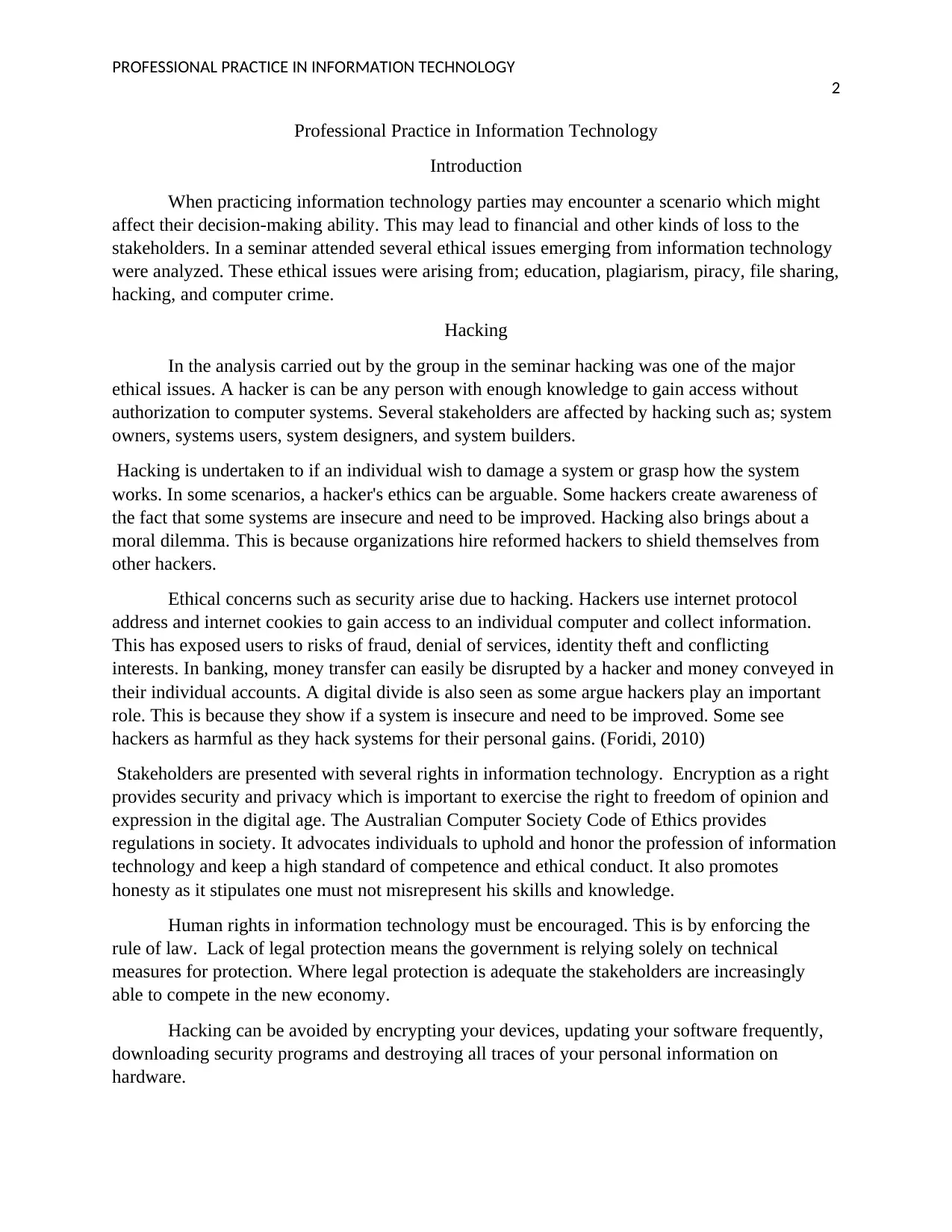SIT223 - Professional Practice: Ethical Analysis of IT Projects
VerifiedAdded on 2023/03/21
|4
|653
|74
Report
AI Summary
This report delves into the ethical challenges encountered in information technology, particularly focusing on hacking and its implications for various stakeholders, including system owners, users, designers, and builders. The analysis considers the motivations behind hacking, ranging from system damage to security vulnerability identification, and explores the resulting moral dilemmas, such as the hiring of reformed hackers for security purposes. Key ethical concerns like security breaches, fraud risks, and identity theft are discussed in relation to internet protocol addresses and cookies. The report also touches upon the digital divide and the contrasting views on hackers' roles. Furthermore, it highlights the importance of human rights in IT, emphasizing encryption for privacy and the role of the Australian Computer Society Code of Ethics in promoting ethical conduct. The report concludes by suggesting preventative measures against hacking and referencing Australia's Cybersecurity strategy and organizational strategies for enhancing IT security. Desklib provides access to this and many other solved assignments for students.
1 out of 4










![[object Object]](/_next/static/media/star-bottom.7253800d.svg)